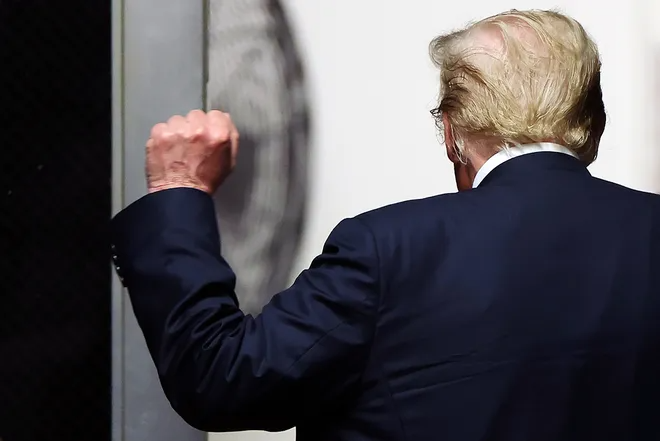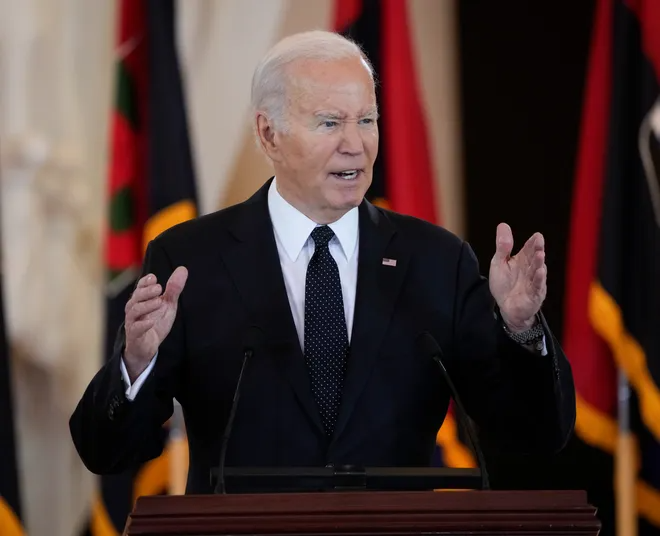The Columbus Dispatch
Former Ohio House Speaker Larry Householder takes the stand Wednesday − nearly three years after his arrest, almost two years after his removal from office and six weeks into a federal corruption trial against him.
The moment is a pivotal one in the pay-to-play case. The decision to put a defendant on the witness stand comes with both risks and rewards, criminal defense attorneys told the USA TODAY Network Ohio Bureau.
Defendants are not required to testify. In fact, the Fifth Amendment protects against self-incrimination. That means the burden to prove Householder’s guilt beyond a reasonable doubt lies with federal prosecutors alone.
“I always want to have the option not to call the defendant unless I absolutely have to,” said David Axelrod, a criminal defense attorney and former federal prosecutor. “It changes the nature of the case.”
Householder’s position in U.S. District Judge Timothy Black’s courtroom is an unfamiliar one for the longtime Republican legislative leader. He spent five-and-a-half years over two stints as House speaker as the one in charge, controlling which bills pass and when. Now, he’s at the mercy of the court and its sometimes plodding timeline.
But as Householder takes the stand, he will once again control the narrative − at least until federal prosecutors pepper him with questions during cross-examination.
Householder can offer the jurors an explanation of his decisions to return to the Ohio House, pass a $1.3 billion bailout for two FirstEnergy Solutions-owned nuclear plants and defend that law against a well-funded effort to block it. Ex-Ohio Republican Party Chairman Matt Borges, who is also on trial, has denied any wrongdoing.
Householder has vehemently defended his own innocence, even as he was removed as House speaker and later from the Ohio House of Representatives.
“I have not, nor have I ever, took a bribe or provided a bribe. I have not, nor have I ever, solicited a bribe. And I have not, nor have I ever, sold legislation. Never, ever,” Householder told lawmakers in June 2021 before they voted to remove him from his House seat. “I intend fully to defend myself, and I intend fully to be acquitted.”
Why take the stand
The racketeering charge leveled against Householder requires criminal intent, and Householder might be the only one who can articulate his true intentions, said Axelrod, who is representing former Ohio House Speaker Cliff Rosenberger in an unrelated FBI probe.
“No one else can say what was in his mind,” Axelrod said.
Plus, Householder is an experienced politician, well-versed in winning people from high-end donors to fellow politicians over to his side.
Former Cincinnati City Councilman P.G. Sittenfeld took the stand in his own defense as the Democratic up-and-comer faced bribery and attempted extortion charges. Undercover agents posed as developers and offered Sittenfeld campaign contributions in exchange for his vote.
The Princeton-educated, well-known politician was able to answer tough questions and had no political or criminal “baggage,” one of Sittenfeld’s attorneys, Charlie H. Rittgers, said. “He did not take one dime of the campaign contribution that the government agents had given him.”
Ultimately, Sittenfeld was convicted and awaits sentencing. Rittgers said he wasn’t able to speak with jurors after the trial, but “I don’t think he hurt his defense.”
In general, it’s important to put the defendant on the stand when it’s a he-said-she-said case pitting one witness against the accused, Rittgers said. “It depends on the alleged victim, whether they are believable or not.”
The credibility war is an important one to win. In 2012, former Cuyahoga County Commissioner Jimmy Dimora did not take the stand in his own defense and was ultimately convicted of accepting more than $166,000 in bribes ranging from home improvements to lavish meals and gambling trips in Las Vegas and Canada.
At the time, attorney Rob Glickman told Cleveland.com that Dimora should take the stand to counter six weeks of the federal prosecutors’ allegations. Glickman now represents Householder in the corruption case against the politician.
“You can’t use the defense of ‘These were just my friends being nice to me’ and not back it up,” Glickman said in 2012. “Unless somebody else says it, he has to say it.”
Why you wouldn’t take the stand
But there are also risks to putting a defendant on the stand. The biggest one is tough questions from skilled federal prosecutors who can’t be dodged in the same way that politicians evade pointed queries from reporters.
“(Householder’s) used to not answering questions that he doesn’t want to answer,” Axelrod said. “He can’t do that on the witness stand.”
Householder might overstate his own ability to win over the jury and end up getting skewered by prosecutors on the witness stand, Axelrod said. “He may think he’s better than he is.”
If the government’s case is weak, putting the accused on the stand might hurt the client, Rittgers said. “Is your client able to articulate his position well, or is he or she going to be screwed up by expert questioning by a prosecutor?”
Prosecutors can also harp on damaging details. For example, Householder’s decision to have his political strategist Jeff Longstreth pay for repairs to Householder’s Florida home and legal bills is a problem that prosecutors would fixate on, Rittgers said. “That’s quite a hurdle.”
But Householder’s attorneys might have to risk it, Axelrod said.
“If I think I’m losing, then calling him may be a Hail Mary.”



































